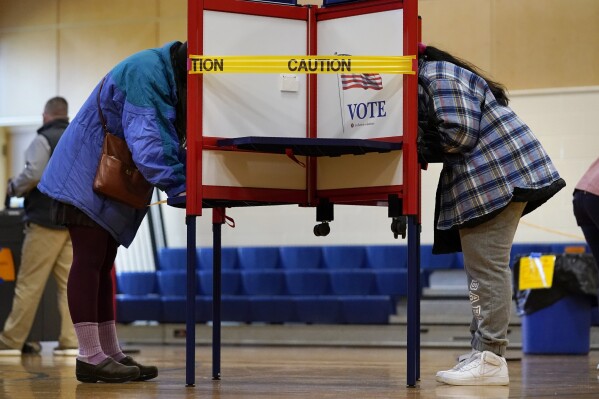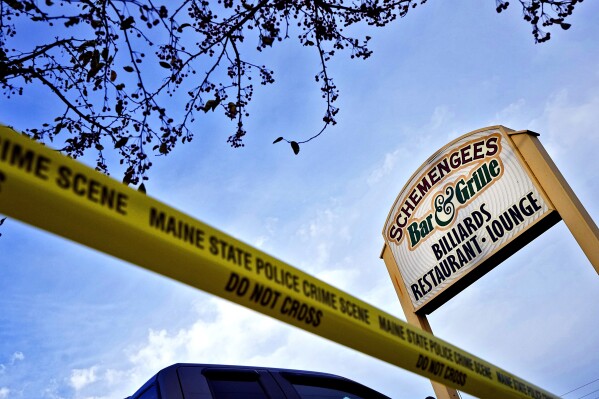Panel investigating Maine’s deadliest shooting to hear from state police
AUGUSTA, Maine (AP) — A panel investigating the deadliest shooting in Maine’s history is set to hear from commanders with state police, which led the multi-agency law enforcement response after 18 people were gunned down at a bar and bowling alley in Lewiston.
Testimony on Thursday from the state police chief, Col. William Ross, and members of the command staff and commanders of specialty teams could shed new light on the Oct. 25 attacks, the aftermath and the search for the gunman.
Tens of thousands of people were ordered to shelter in their homes as police converged on the sites of the shootings and searched for an Army reservist armed with an assault rifle. The gunman, Robert Card, was quickly identified, and his abandoned vehicle was found in a nearby community, but he wasn’t located until 48 hours after the shooting, dead from suicide.
Democratic Gov. Janet Mills and Attorney General Aaron Frey assembled the independent commission to determine whether anything could have been done under existing law to prevent the tragedy, and whether changes are needed to prevent future mass shooting incidents.



Both police and the Army were warned that Card was suffering from deteriorating mental heath in the months before the shooting.
In May, relatives warned police that the 40-year-old Card was sinking into paranoia, and they expressed concern about his access to guns. In July, Card was hospitalized for two weeks after shoving a fellow reservist and locking himself in a motel room during training in upstate New York. In August, the Army barred him from handling weapons on duty and declared him nondeployable.
Then in September, a fellow reservist provided a stark warning, telling an Army superior that Card was going to “snap and do a mass shooting.”
Army officials later downplayed the warning, but it prompted local police to go to Card’s home in Bowdoin to check on him. Card didn’t come to the door and the deputy said he didn’t have legal authority under Maine’s yellow card law to knock in the door.
The deputy told the commission that an Army official suggested letting the situation “simmer” rather than forcing a confrontation. The deputy also received assurances from Card’s family that they were removing his access to guns.
Disclaimer: The copyright of this article belongs to the original author. Reposting this article is solely for the purpose of information dissemination and does not constitute any investment advice. If there is any infringement, please contact us immediately. We will make corrections or deletions as necessary. Thank you.





